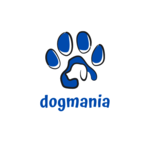The Truth About Homemade Dog Food: Debunking Common Myths and Misconceptions
In recent years, there has been a surge in interest surrounding homemade dog food. Pet owners, concerned about the quality and safety of commercial pet foods, are turning to homemade alternatives in an effort to provide their furry companions with the best nutrition possible. However, along with this growing trend comes a slew of myths and misconceptions about homemade dog food. In this article, we'll delve into the truth behind these myths and provide clarity on the subject.
Myth #1: Homemade Dog Food is Always Healthier Than Commercial Options
One of the most common misconceptions about homemade dog food is that it's inherently healthier than commercial options. While homemade food can offer certain benefits, such as control over ingredients and the ability to cater to specific dietary needs, it's not always the best choice for every dog. Creating a balanced homemade diet requires careful planning and consideration of essential nutrients. Without proper knowledge and guidance, homemade meals can lack essential vitamins and minerals, potentially leading to nutritional deficiencies.
Myth #2: All Homemade Dog Food Recipes Are Safe
Another prevalent myth is that all homemade dog food recipes are safe and nutritious. The reality is that not all recipes found online or in cookbooks are created equal. Some may lack essential nutrients, while others may contain ingredients that are harmful to dogs. It's crucial to research recipes thoroughly and consult with a veterinarian or canine nutritionist to ensure that the homemade meals you're feeding your dog are nutritionally balanced and safe.
Myth #3: Dogs Can Thrive on a Vegetarian or Vegan Diet
There's a misconception that dogs can thrive on a vegetarian or vegan diet, just like humans. While dogs are omnivores and can technically survive on a plant-based diet, they have specific nutritional requirements that are best met with a diet that includes animal-derived protein sources. Dogs require amino acids like taurine and lysine, which are primarily found in animal products. Feeding a dog a strictly vegetarian or vegan diet without proper supplementation can lead to serious health issues, including nutrient deficiencies and muscle wastage.
Myth #4: Homemade Dog Food is Always More Affordable
Many people believe that homemade dog food is a cost-effective alternative to commercial options. While it's true that homemade meals can be tailored to fit a variety of budgets, they're not always cheaper in the long run. Quality ingredients, especially lean proteins and fresh produce, can be expensive. Additionally, the cost of supplements and veterinary consultations to ensure a balanced diet should be factored in. While homemade dog food can be affordable with careful planning and budgeting, it's essential to consider all associated costs.
Myth #5: Raw Diets Are Superior to Cooked Diets
Raw diets, which consist of uncooked meat, bones, fruits, and vegetables, have gained popularity among some pet owners who believe they mimic a dog's natural diet in the wild. However, there's a lack of scientific evidence to support the superiority of raw diets over cooked diets. Raw diets pose health risks not only to dogs but also to their human companions due to the potential for bacterial contamination, such as salmonella and E. coli. Cooking food helps eliminate harmful bacteria and makes nutrients more digestible for dogs. It's crucial to weigh the risks and benefits carefully before opting for a raw diet for your dog.
Myth #6: Homemade Diets Can Cure Allergies and Health Issues
Some pet owners believe that switching to a homemade diet can cure allergies and other health issues in their dogs. While a well-balanced diet can certainly support overall health and may alleviate certain symptoms, it's unlikely to be a cure-all for complex medical conditions. Allergies, for example, can be triggered by a variety of factors beyond diet, including environmental allergens and genetics. It's essential to work closely with a veterinarian to diagnose and manage any health issues your dog may have, rather than relying solely on dietary changes.
conclusion
In conclusion, while homemade dog food can offer certain benefits, it's essential to separate fact from fiction when it comes to feeding your furry friend. Debunking common myths and misconceptions about homemade dog food is crucial for ensuring that your dog receives the nutrition they need to thrive. By researching recipes carefully, consulting with professionals, and prioritizing your dog's nutritional needs, you can provide them with a safe and balanced diet that supports their overall health and well-being.



leave me your thoughts here